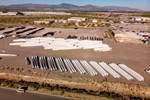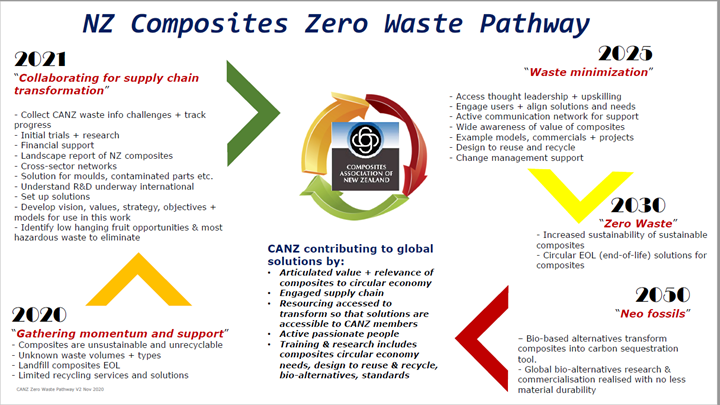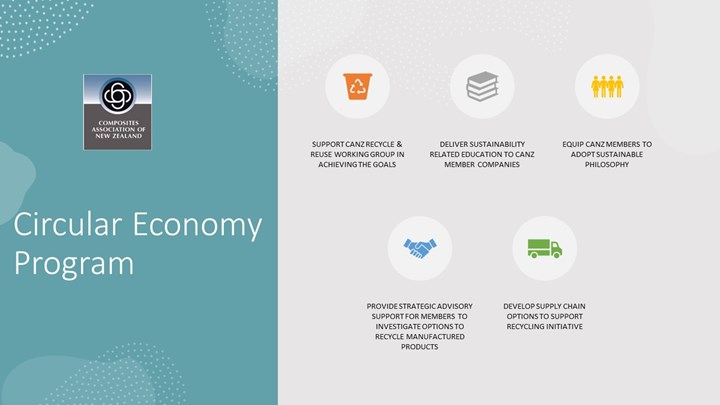New Zealand launches Composites Circular Economy program
Collaborative working group aims to develop new capabilities for Aotearoa, New Zealand, composites manufacturers to develop environmentally friendly products via several recycling initiatives leading up to 2030.
Sustainability was identified as the key to the future of composite at the 2020 Composites Association of New Zealand (CANZ) Annual Conference. To achieve its vision of creating a circular economy in the New Zealand composites industry by 2030, CANZ set up a working group — within a year’s worth of rigorous effort, the Composites Circular Economy program was launched at the 2021 online annual conference. Since then, CANZ notes several milestones have been achieved.
The Composites Circular Economy program aims to develop the capabilities of composite manufacturers in Aotearoa, New Zealand, by creating products that deliver high performance but are also environmentally friendly. The program comprises multiple teams that bring together business and engineering expertise, including New Zealand-based Composites Association of New Zealand, University of Auckland, Callahan Innovation, Maskells and Armatec Environmental.
The program, led by Vineeth Babu, CANZ vice president and program manager, Catherin Taiapa, chairperson Sustainability Group and Glenn Campbell, CANZ president, consists of multiple projects aimed at improving the sustainability index of composite products manufactured in New Zealand. This has included:
- Investigation of the mechanical properties of recycled materials by the University of Auckland
- Sustainability Training and CSUST 2025 which develop an administrative framework to maintain sustainability standards.
There are also a few projects at proposal stage about a recycling facility setup in New Zealand, and life cycle assessment (LCA) capabilities.
According to Babu, a great deal of effort has also been put up by sustainability working group members in drafting various policies and governing structures to impart circular culture in the industry. This has reportedly led to involve major universities and research institutions across the country that support these efforts.
Since its beginning in 2021, the Composites Circular Economy program has already achieved several milestones, including:
- Waste management policy for all CANZ members by 2023
- Circular economy education hubs in different regions (by 2024)
- Viable composites recycling option for New Zealand (by 2025)
- Develop supply chain and fully operational recycling (by 2027)
More on target for 2022, and evolving out of the pandemic, the working teams are aiming to:
- Release the draft sustainability policy for member consultation
- Develop assessment tools to measure sustainability index of members
- Analyze suitability of identified recycling technology
By 2030, the program working group hopes to deliver an innovative product made via New Zealand’s recycling solution for the composites industry, which will reduce the net waste generated. Collaborations from both national and international partners are welcomed in enriching the manufacturing technology in New Zealand.
Related Content
-
Novel dry tape for liquid molded composites
MTorres seeks to enable next-gen aircraft and open new markets for composites with low-cost, high-permeability tapes and versatile, high-speed production lines.
-
Price, performance, protection: EV battery enclosures, Part 1
Composite technologies are growing in use as suppliers continue efforts to meet more demanding requirements for EV battery enclosures.
-
Sulapac introduces Sulapac Flow 1.7 to replace PLA, ABS and PP in FDM, FGF
Available as filament and granules for extrusion, new wood composite matches properties yet is compostable, eliminates microplastics and reduces carbon footprint.


















